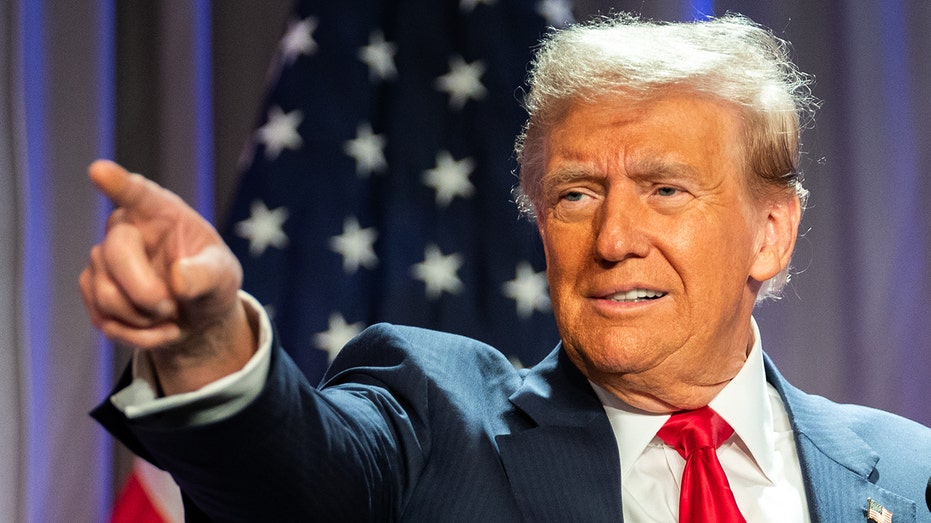'Dangerous fallacy': Conservative hammers Trump's Greenland threats
President-elect Donald Trump has turned toward an obsession with acquiring various neighboring lands, from Greenland and Canada to the Panama Canal, with his ally Steve Bannon even fantasizing about conquering the entire continent of North America. But the irony, wrote conservative analyst Noah Rothman for the National Review, is that such conquests were made unnecessary by the modern international order of free trade and cooperation — which Trump is now seeking to tear down.Specifically, Trump is pushing for massive trade wars against all of the U.S.' major trade partners, which economists have raised alarms would be devastating to U.S. consumers. But, wrote Rothman, it goes deeper than that."There is something to be said about a particular disposition that regards territorial expansionism as a necessary tool of statecraft. It is the sort of outlook that was common to policymakers in the pre-War world — an environment typified by inviolable spheres of influence in which international free trade agreements were far rarer," wrote Rothman. "If you are inclined to see resource acquisition as a zero-sum competition for finite commodities — indeed, if you view trade as a form of war by other means, as Moscow did in the years preceding its adventurism in Ukraine — you’re more likely to see expansionist wars of conquest as vital national projects."ALSO READ: 'Hope he has a massive stroke': Critics pounce on Trump mocking California amid firesIndeed, he noted, research published in recent years suggests that nations with more expansive free trade agreements are less likely to get involved in territorial wars — while more isolated ones display greater military aggression to their neighbors.The bottom line, Rothman argued, is that Trump plans to tear down the very institutions and systems that currently let the United States freely use the resources of the countries and territories he now says America should seize for itself."Trump is not 'thinking big.' Rather, the president-elect and those who have entertained his thought bubble as though it was a serious proposition have demonstrated their adherence to a dangerous fallacy," Rothman concluded. "It’s no coincidence that the renewed popularity of protectionist thinking has made the prospect of war more thinkable."


President-elect Donald Trump has turned toward an obsession with acquiring various neighboring lands, from Greenland and Canada to the Panama Canal, with his ally Steve Bannon even fantasizing about conquering the entire continent of North America. But the irony, wrote conservative analyst Noah Rothman for the National Review, is that such conquests were made unnecessary by the modern international order of free trade and cooperation — which Trump is now seeking to tear down.
Specifically, Trump is pushing for massive trade wars against all of the U.S.' major trade partners, which economists have raised alarms would be devastating to U.S. consumers. But, wrote Rothman, it goes deeper than that.
"There is something to be said about a particular disposition that regards territorial expansionism as a necessary tool of statecraft. It is the sort of outlook that was common to policymakers in the pre-War world — an environment typified by inviolable spheres of influence in which international free trade agreements were far rarer," wrote Rothman. "If you are inclined to see resource acquisition as a zero-sum competition for finite commodities — indeed, if you view trade as a form of war by other means, as Moscow did in the years preceding its adventurism in Ukraine — you’re more likely to see expansionist wars of conquest as vital national projects."
ALSO READ: 'Hope he has a massive stroke': Critics pounce on Trump mocking California amid fires
Indeed, he noted, research published in recent years suggests that nations with more expansive free trade agreements are less likely to get involved in territorial wars — while more isolated ones display greater military aggression to their neighbors.
The bottom line, Rothman argued, is that Trump plans to tear down the very institutions and systems that currently let the United States freely use the resources of the countries and territories he now says America should seize for itself.
"Trump is not 'thinking big.' Rather, the president-elect and those who have entertained his thought bubble as though it was a serious proposition have demonstrated their adherence to a dangerous fallacy," Rothman concluded. "It’s no coincidence that the renewed popularity of protectionist thinking has made the prospect of war more thinkable."



